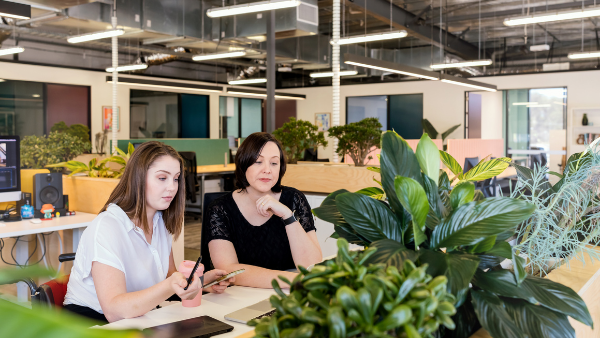Related people
Rachael Lloyd
Partner

The climate crisis is an issue that can no longer be ignored. Individuals and businesses alike are becoming more aware of the desperate need for us to make changes now to the way that we live and work. This article considers how and why businesses should move towards a more sustainable way of operating.
A sustainable business is one that aims to reduce its negative impact on the global or local environment and may even work towards having a positive impact. Sustainable businesses will often incorporate principles of sustainability into business decisions and commit to environmental principles within their business operations, as well as, where possible, supplying environmentally friendly products or services.
Individuals and organisations are becoming more conscious of the environment and the impact their decisions have on the planet. As a result, they are increasingly choosing to look for sustainable businesses that can supply them with the goods and services they require. In order to remain successful amongst competitors, businesses may well need to start considering how the provision of their goods and services, and their ethos and practices, meet the sustainability test.
A recent study found that, since 1988, just 100 companies are responsible for more than 70% of the world’s greenhouse gas emissions. If businesses start taking responsibility for their impact on the environment, we can take big strides towards a greener planet. The drive of businesses collectively will have a vast impact on the environment and will enable and encourage individuals to make changes more readily.
By becoming more sustainable, businesses can reduce business costs and, as a result, increase profitability. For example, using more efficient lighting, reducing waste and reusing existing materials can all contribute to a reduction in the outgoing costs of the business.
Customers and clients are increasingly looking to invest in and work with businesses who value sustainability. By increasing a business’s sustainability, the business can also benefit from a stronger, positive reputation and increased customer and client base. This, in turn provides the business with a competitive advantage.
Michelmores has developed a committed sustainability drive and has worked hard over the years to reduce the impact it has on the environment and work with clients to improve sustainability across various industries.
In February 2020, Michelmores hosted the Impact Investing Lawyers Network. The panellists and guests considered the importance for us all to be responsible and work towards being more sustainable. At the centre of the discussions was The Chancery Lane Project’s Climate Contract Playbook.
The Chancery Lane Project is an initiative which encourages lawyers, law firms and their clients to come together to make changes, big and small. Those behind the Project state that “no one organisation can solve the issue alone, the challenges are too big, complex and interconnected“. By working together, we can ensure that changes are made now, rather than when it is too late.
Michelmores advise impact investment clients who seek beneficial and sustainable social and/ or environmental outcomes. We have also partnered with Oxygen House, a business that invests in projects which foster social, environmental and economic prosperity. More can be read about this in another of our articles. Michelmores and Oxygen House have worked together to deliver a number of measurable environmental initiatives including:
These projects have been supported by the firm’s ThinkGreen Committee, where employees work together to encourage a more sustainable workplace.
We are pleased to see many of our clients taking an interest in our sustainable practices and considering the ethos of those companies with which they partner.
For more on what Michelmores is doing in relation to sustainability, please see Michelmores Sustainability and Nature Capital.
Some of the suggestions in the Chancery Lane Project’s Climate Contract Playbook include:
Businesses should also consider what they could do around the office to help improve their impact on the environment, whilst encouraging employees to do the same. This could include:
With the current coronavirus pandemic, offices are not being used as frequently as before. However, it is important to ensure that when they are used, they are used in the most efficient way possible. Businesses can also continue to encourage employees to work sustainably, even when they are working remotely. In the future, clients and customers, as well as employees, may no longer feel the need to travel long distances for meetings or events. Holding meetings virtually, whilst necessary at the moment, is a good way of reducing a business’s overall carbon footprint in the long term.
Royal Mail has added 190 electric vans to its fleet in order to reduce emissions, and is also trialling the use of “e-trikes“, which are solar-powered delivery tricycles.
Unilever has claimed that its portfolio of 26 sustainable brands, including Dove, Lipton, Knorr and Vaseline, grew 46% faster than the rest of its business in 2019. This shows the benefit that sustainability can have on business growth.
Marks & Spencer sources all its cotton sustainably and has a plan to reduce its use of single-use plastic.
BT has been reducing the carbon intensity of its operations. It reduced the intensity by 80% in 2016 and is aiming to reduce it still further.
McDonalds is working with franchises to reduce its carbon emissions and is investing in renewable energy and energy efficient kitchen equipment. McDonalds aims to ensure that, by 2025, all of its packaging will come from renewable, recycled or certified sources.
Whilst many of these businesses are large, with capital to invest in making their businesses more sustainable, it is possible to make small changes, which can still have a big impact on the overall sustainability of your business.
This article is for information purposes only and is not a substitute for legal advice and should not be relied upon as such.